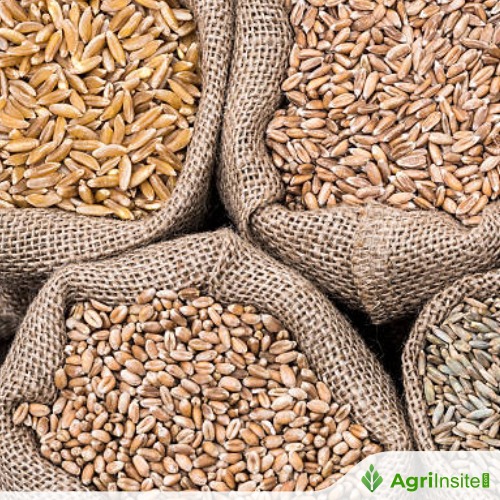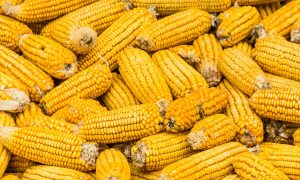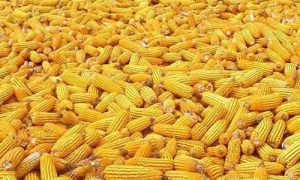Egypt imports 4.9 M tons of wheat, 4.2 M tons of yellow corn amid regional instability

Egypt has imported 4.9M tons of wheat, 4.2M tons of corn, and 2.2M tons of soybeans in 2025 despite regional tensions. Agriculture Minister Alaa Farouk highlighted strong food security measures and rising agri-exports. New import origins are under review. Exports reached 5.2M tons by mid-year, with citrus, potatoes, and sweet potatoes leading. Strategic reserves and diversification remain priorities.
The Egyptian Ministry of Agriculture has confirmed the continued smooth flow of strategic commodity imports into the country, despite ongoing regional tensions. Between January 2025 and today, Egypt has successfully imported approximately 4.9 million tons of wheat, 4.2 million tons of yellow corn, and 2.2 million tons of soybeans, according to official data.
Minister of Agriculture and Land Reclamation, Alaa Farouk, emphasized that the ministry has intensified efforts across its departments to enhance Egypt’s food security. This proactive approach comes in response to the ongoing regional crises, particularly the escalating conflict between Iran and Israel, and its impact on global food supply chains and commodity prices.
Despite these challenges, Farouk confirmed that the Ministry of Agriculture is committed to securing the nation’s food supply. A set of preemptive measures has been implemented to ensure stability in Egypt’s food security strategy.
The Minister highlighted a record increase in Egypt’s agricultural exports and imports, affirming the effectiveness of coordinated government efforts. These include robust actions by the Central Administration of Plant Quarantine and the Department of Foreign Agricultural Relations, which are actively opening new markets for Egyptian crops—an effort contributing to increased foreign currency revenues and national economic growth.
Minister Farouk praised the role of the Plant Quarantine Authority in assessing and approving new import origins for strategic agricultural commodities and production inputs. This diversification strategy is essential to shield Egypt from potential disruptions in any single supply country. The ministry is also collaborating with other government bodies to bolster strategic reserves, ensuring the continued availability of essential goods across Egypt.
Farouk reiterated the ministry’s unwavering support for Egyptian farmers—the cornerstone of the agricultural sector. The government is actively working to improve productivity through the distribution of certified seeds, provision of high-quality inputs, and ongoing awareness campaigns promoting modern agricultural practices. These initiatives are designed to optimize the use of land and water resources while increasing yields.
He added that under the leadership of President Abdel Fattah El-Sisi, Egypt is well-prepared to face global challenges. The launch of several mega national agricultural projects during President Sisi’s tenure has contributed significantly to expanding arable land and achieving unprecedented advancements in the sector. These efforts reflect the President’s close monitoring and prioritization of Egypt’s agricultural and food security portfolios.
Minister Farouk concluded that the ministry’s strategic foresight has enhanced Egypt’s capacity to meet domestic food needs and protect citizens from global market volatility. “Food security is national security,” he stated. “We will spare no effort in safeguarding it.”
In related news, Dr. Mohamed El-Mansy, Head of the Central Administration of Plant Quarantine, confirmed that Egypt’s agricultural exports have remained resilient, reaching 5.2 million tons by mid-2025. This includes strong seasonal performances in crops such as strawberries, citrus fruits, and potatoes, many of which have now completed their export seasons.
Meanwhile, export activity continues for sweet potatoes and onions, which have seen notable growth, with upcoming seasons for grapes, mangoes, and pomegranates expected to deliver record-breaking results.
Dr. El-Mansy also highlighted that new strategic import sources are currently under review, particularly in light of climate change and global production shifts. Risk management protocols are being developed to prevent the introduction of economically harmful pests, ensuring that Egypt’s food safety and agricultural standards remain protected.
For almost 30 years of expertise in the agri markets, UkrAgroConsult has accumulated an extensive database, which became the basis of the platform AgriSupp.
It is a multi-functional online platform with market intelligence for grains and oilseeds that enables to get access to daily operational information on the Black Sea & Danube markets, analytical reports, historical data.
To Read more about Wheat News continue reading Agriinsite.com
Source : Ukr Agro Consult

















